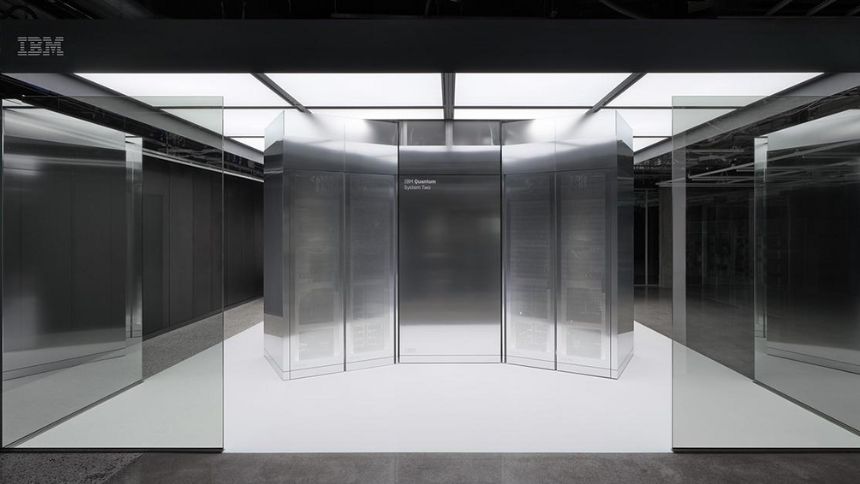
U of Chicago collaborating on new quantum project with IBM and State of Illinois
The multi-faceted project includes IBM’s National Quantum Algorithm Center and IBM's Quantum System Two computer.
The University of Chicago (UChicago) will collaborate closely on a new initiative by IBM and Illinois Gov. JB Pritzker to launch IBM’s National Quantum Algorithm Center in Chicago.
While the new Center’s permanent home will eventually be located within the Illinois Quantum and Microelectronics Park, still under construction, it will initially operate out of Discovery Partners Institute and the University of Chicago. Additionally, a modular quantum computer called IBM Quantum System Two will be located at Hyde Park Labs, supported by UChicago.
Built with the aim of advancing quantum-centric supercomputing across multiple industries, both the Quantum Algorithm Center and Quantum System Two will serve to reinforce Illinois’ position as a global leader in quantum computing, helping spur additional commercialization opportunities for entrepreneurs, while driving job creation and private investment.
“IBM’s decision to engage more deeply with our vibrant Illinois quantum ecosystem marks a new phase in the development of quantum information technologies,” said Paul Alivisatos, President of the University of Chicago. “UChicago faculty and students will be able to deepen and expand their work in this area in collaboration with IBM scientists, colleagues from other universities, and many interested companies.”
Development of the new center will enable Illinois’ growing ecosystem of quantum innovators across academia, national labs and industries to discover how quantum-centric supercomputing could be used for complex challenges. Experts believe quantum computing will help solve certain complex problems more easily than classical computers, because quantum computers process information in a unique way that lets them explore many possibilities rapidly. Integrating quantum and classical computers will help researchers to break apart problems, allowing each computing architecture to solve parts of a complex algorithm for which it is best suited.
Like what you've read?
Forward to a friend!

